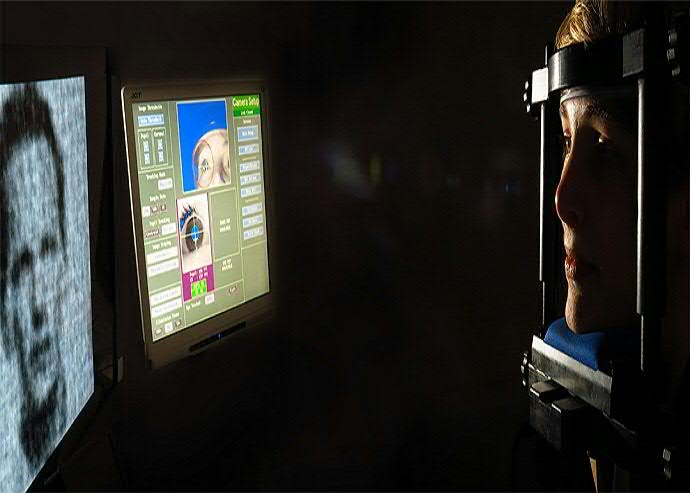3.8 miljoen EU-subsidie voor onderzoek naar aanpassing brein bij oogziektes en hersenaandoeningen

De Europese Unie heeft een subsidie van 3.8 miljoen euro toegekend aan het onderzoeksproject ‘NextGenVis’. In dit project gaan hersenonderzoekers na of en hoe het visuele deel van het brein zich aanpast en reageert op bepaalde oogziektes en hersenaandoeningen. Hersenonderzoekers Frans Cornelissen en Barbara Nordhjem van het UMCG leiden het internationale project, waarin onderzoekers van 15 instellingen uit zes landen meedoen. Het onderzoek duurt vier jaar en 15 nieuw aan te stellen promovendi gaan het uitvoeren.
Tijdens een mensenleven kan het gezichtsvermogen veranderen. Dit kan bijvoorbeeld veroorzaakt worden door veelvoorkomende oogziekten als glaucoom en macula degeneratie, maar ook het gevolg zijn van een hersenaandoening. De onderzoekers willen nagaan hoe het brein reageert op de veranderde informatie die het vanuit de ogen krijgt. Blijft de structuur van de visuele cortex - het deel van de hersenen dat betrokken is bij visuele waarneming - gelijk of past dit zich aan? Er zijn op dit moment veel technologische ontwikkelingen rond ondersteuning van het gezichtsvermogen, bijvoorbeeld via in het oog implanteerbare chips. Om deze succesvol te laten zijn is het essentieel om precies te weten hoe het gehele menselijk visuele systeem van zowel ogen als brein werkt en hoe dit zich kan aanpassen.
De onderzoekers kunnen de nieuwste technologische mogelijkheden inzetten voor deze studie. Zij maken o.a. gebruik van zeer nauwkeurige fMRI-scanners voor het onderzoek aan de visuele cortex, en apparatuur om oogbewegingen mee te volgen. Ze ontwikkelen ook nieuwe analysetechnieken om alle gegevens op een goede manier met elkaar te combineren en nieuwe gedetailleerde informatie over de werking van het visuele brein te achterhalen.
Belangrijk voor toekenning van de subsidie was dat er bij de deelnemende organisaties al veel fundamentele kennis aanwezig is op het gebied van het aanpassingsvermogen van het brein. Projectleider Frans Cornelissen is daarom optimistisch over het ‘NextGenVis’-project. “Het bouwt voort op eerder succesvol onderzoek en komt voort uit een aantal al veel langer bestaande samenwerkingen. Het NextGenVis-project legt een verbinding tussen verschillende kleinere samenwerkingsverbanden in Europa”.
Het subsidiebedrag is door de EU verstrekt in het kader van het Marie Sklodowska-Curie programma. Dit programma wil beginnende onderzoekers de kans geven om hun onderzoeksvaardigheden te verbeteren, samen te werken met gevestigde onderzoeksteams en hun eigen carrièrekansen verruimen. Voorwaarde voor subsidie is dat bij de projecten meerdere organisaties uit verschillende Europese landen betrokken zijn en dat er nauwe samenwerking is tussen onderzoeksinstituten en het bedrijfsleven.
Bron: persbericht UMCG
Meer nieuws
-
17 november 2025
Kunstmatige intelligentie in de zorg
-
04 november 2025
AI-Fabriek in Groningen zorgt voor digitale soevereiniteit
-
03 november 2025
Menopauze in perspectief: Hoe de media onze beleving beïnvloeden
